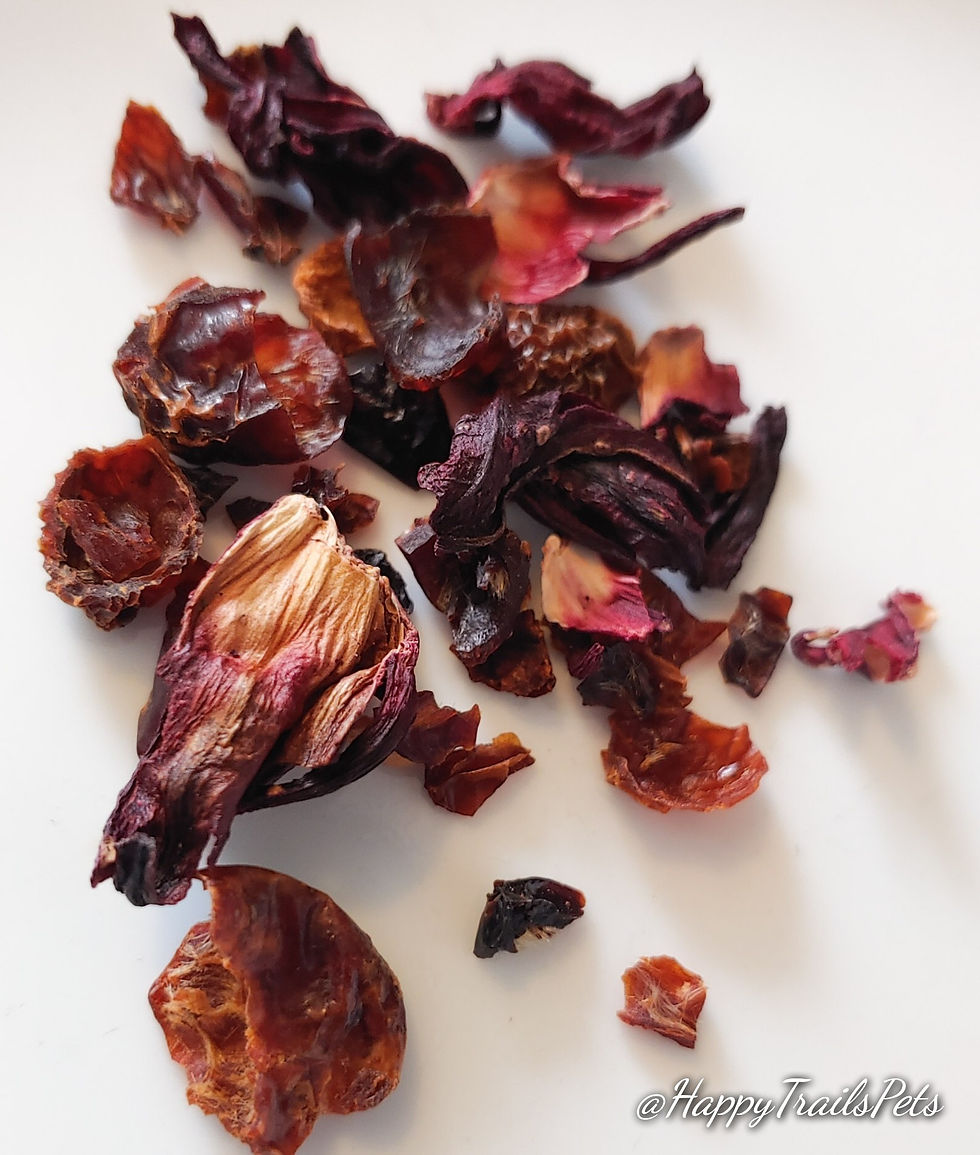Preventing scurvy in guinea pigs; Find out which vitamin is essential!
- Katie, CVT, DN-CET, HABc, CPCN, PNCC

- Apr 2, 2020
- 3 min read
Updated: Feb 9, 2021

While dogs and cats are able to manufacture/ synthesize their own vitamin C.. Guinea pigs are not. Nor can it be store, because it is water soluble.
Vitamin C is known to be a great antioxidant for immune support when illness occurs.
But it is also extremely important for collagen formation, building cartilage, connective tissue, blood vessels, wound healing, blood clotting, and bone health.
A few more proven benefits:
Shown to protect against Lead toxicity.
Plays a crucial part in the function of neurotransmitters.
Helps to fight against free radicals, prevent DNA mutation, and ultimately prevent cancer!
Vitamin C is very important, and without it, we can surely run into some problems.
Most commonly, a lack of dietary vitamin C in guinea pigs can cause a condition called scurvy. This can also occur in other animals and even humans, though it is not very common.
Scurvy is classified by:
Joint swelling and pain
Diarrhea
Loose teeth
Bleeding of gum
Anemia
Lethargy
Joint pain
Loss of collagen in joints and connective tissue
To prevent this, Vitamin C must be present in the diet on a daily basis.
Supplement options:
Recommendations on amounts of vitamin C can vary, but generally guinea pigs need 10-30mg/day.
Water drop additives are pretty popular, but vitamin C is one of the least stable of all vitamins, and quickly degrades and loses potency when exposed to air and light.
You would have to change the water and re-add the drops multiple times a day for it to be even partially effective as a supplement.
Not only that, but these are synthetic, isolated compounds, or fractions of the whole vitamin.
In the case of vitamin C, one well-known component of the vitamin structure is Ascorbic Acid.
When this is isolated, it creates gaps, less bio-availability, and therefore presents less therapeutic value overall.
Bioflavonoids, micro-nutrients, and other components work in synergy within a vitamin complex, but when broken apart to isolate these certain variables, this mechanism is lost.
It is impossible to perfectly replicate a natural vitamin and all of its parts.
Pellets:
Guinea pig food comes in a pelleted form, and is preloaded with extra vitamin C.
But in order to get the best out of it, look for ones that have stabilized vitamin C and do not buy food in bulk. The longer a bag of food is open, the more it oxidizes and degrades important nutrients..
To preserve the vitamin C in pellets, keep them in a cool dark place.
Overall, I must say: whole food based vitamin C is obviously the best.
And although oranges have become the face of vitamin C, there are many other foods that contain it as well.
*I do caution citrus fruits given to guinea pigs because in excess, it can cause mouth sores. So please give them sparingly.
A few of the best foods that you can give with good levels of natural vitamin C is:
Spinach
Bell peppers
Broccoli
Strawberries
Dark leafy greens should make up a pretty hefty portion of any guinea pig's diet.
A variety of plants and herbs are also excellent sources of vitamin C:
Rose Hips
Hibiscus
Parsley

Hibiscus, and rose hips can also be brewed into a nice vitamin and mineral rich tea for YOU to drink! It tastes delicious!
These can be grown at home, or purchased at your local tea shop or health food store in bulk.
Now, if we provide as much whole foods as we can that are species appropriate, including plants and herbs, we will find less of a need to provide artificial supplements or 'fortified' foods, because the diet will naturally be complete.
And this creates healthy, happy piggies!!






Comments